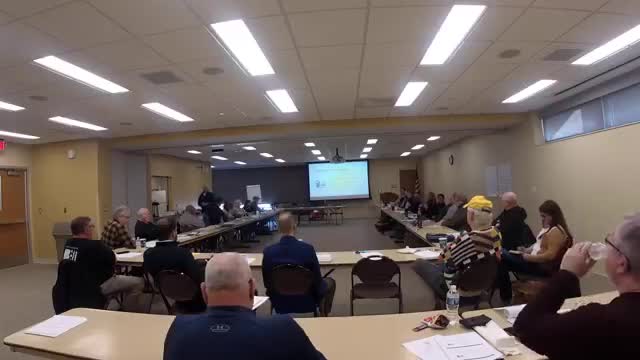Tazewell County officials review drug court capacity, enforcement and homelessness services
Get AI-powered insights, summaries, and transcripts
Subscribe
Summary
Officials discussed drug enforcement caseloads, drug court capacity limits, new counseling and mental health support, and efforts to reduce homelessness including a Pekin social worker; no formal actions were taken.
Tazewell County officials and board members discussed drug enforcement, drug court capacity and homelessness during the meeting, outlining current services, staffing limits and partnerships with local social-service providers.
A county official said the county has filed more than 900 drug-related cases over the past two years and described a coordinated criminal-justice effort that includes the sheriff’s office, probation, the circuit clerk and courts. The official said drug court currently has about 40 participants — the program’s current maximum — and that the program could expand to “100 or 150” participants only if additional counselors and probation officers were available.
Speakers described several recent investments: hiring a drug counselor in the last 18 months; contracting with a University of Illinois clinician to visit probation clients for mental-health assessments; and using a social worker in Pekin whose casework has reduced the local homelessness census from about 160 people to roughly 80. Participants noted many services combine public funding with nonprofit partners such as the Salvation Army and local groups identified as the Phoenix Group.
Officials stressed resource limits. One county official said probation officers are managing caseloads that include roughly 400 people, and that staffing shortages limit both enforcement and rehabilitation capacity. The discussion included a cited per-person annual incarceration cost — $48,000 — used to frame the fiscal argument for alternatives to jail.
Speakers also raised that some people eligible for housing or treatment decline services because of severe mental illness. The board discussed prevention programs and early interventions targeted at youth alongside enforcement and treatment.
No formal votes or new program authorizations were recorded during the discussion; participants asked staff to continue pursuing both enforcement and service strategies and to return with more information on capacity, costs and partnership opportunities.
